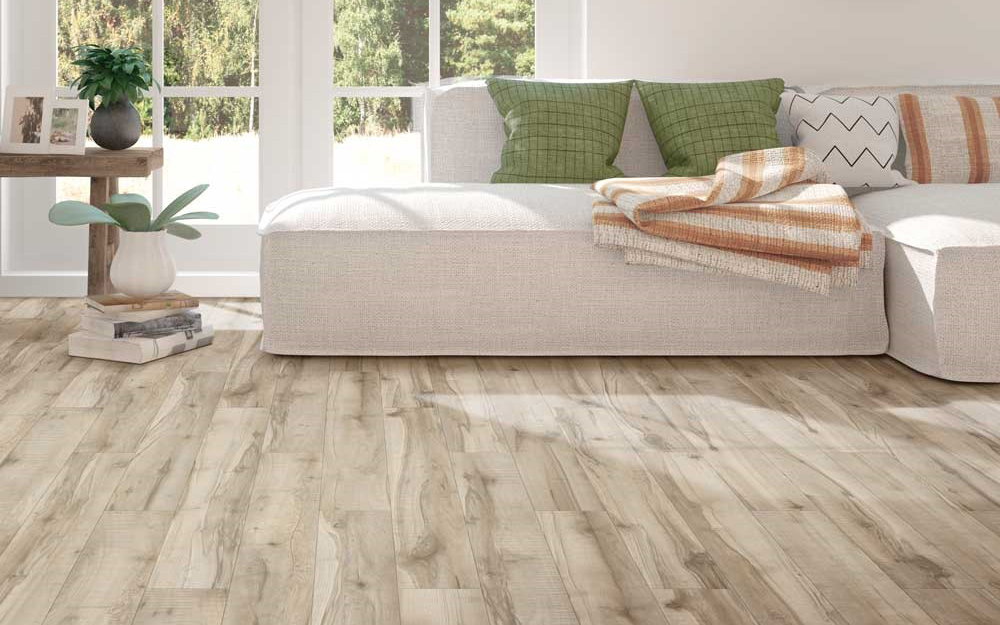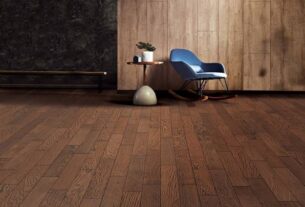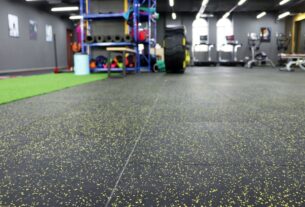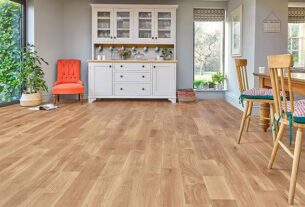When it comes to choosing the right flooring for your home, vinyl flooring has become one of the most popular options due to its durability, affordability, and stylish appearance. Among the different types of vinyl flooring Dubai SPC (Stone Plastic Composite) and WPC (Wood Plastic Composite) are two of the most commonly compared choices. Both offer unique benefits, making it essential to understand their differences before making a decision. In this blog post, we will explore SPC and WPC vinyl flooring in detail and help you determine which one is the best fit for your home.
What is SPC Vinyl Flooring?
SPC (Stone Plastic Composite) vinyl flooring is engineered with a core made from a blend of limestone powder, polyvinyl chloride (PVC), and stabilizers. This composition makes SPC flooring incredibly dense and rigid, providing excellent durability and resistance to impact. SPC flooring is widely chosen for both residential and commercial spaces due to its ability to withstand heavy foot traffic and extreme conditions.
Key Features of SPC Flooring:
High Durability: The stone composite core makes SPC flooring highly resistant to wear and tear.
Waterproof: 100% waterproof, making it suitable for kitchens, bathrooms, and basements.
Scratch and Impact Resistance: Ideal for areas with heavy furniture or high traffic.
Stable in Temperature Changes: Performs well in areas exposed to direct sunlight or fluctuating temperatures.
Thin but Strong: Typically, SPC flooring is thinner than WPC flooring but more rigid and stable.
What is WPC Vinyl Flooring?
WPC (Wood Plastic Composite) vinyl flooring is designed with a core made from wood fiber, PVC, and foaming agents. This results in a softer, more cushioned feel underfoot compared to SPC flooring. WPC flooring is preferred in homes where comfort and warmth are primary concerns.
Key Features of WPC Flooring:
Comfortable Underfoot: The foamed core provides a softer and more cushioned feel, reducing strain on feet and joints.
Waterproof: Just like SPC flooring, WPC is 100% waterproof, making it great for moisture-prone areas.
Sound Absorption: The wood-plastic core helps to absorb noise, making it a quieter flooring option.
Good for Uneven Subfloors: The thicker, more flexible nature of WPC flooring allows it to be installed over slightly uneven surfaces with minimal preparation.
Warmer Feel: WPC retains warmth better, making it a good choice for colder climates.
SPC vs. WPC: A Detailed Comparison
Now that we understand the basics of both SPC and WPC flooring, let’s compare them based on key factors to help you decide which is the best choice for your home.
Durability and Strength
SPC flooring is the clear winner when it comes to durability. Its stone composite core makes it denser and more resistant to dents, scratches, and wear. WPC, while still durable, is softer and more prone to dents from heavy furniture.
Best for: High-traffic areas, commercial spaces, or homes with pets and children.
Comfort and Underfoot Feel
WPC flooring is more comfortable due to its thicker, foamed core, providing a cushioned feel underfoot. This makes it ideal for bedrooms, living rooms, and areas where you stand for extended periods.
Best for: Residential spaces, especially bedrooms and family rooms.
Water and Moisture Resistance
Both SPC and WPC flooring are 100% waterproof, making them excellent choices for bathrooms, kitchens, and basements. However, since SPC is denser, it is slightly more resistant to water damage over time.
Best for: Any moisture-prone areas in the home.
Stability in Temperature Changes
SPC flooring performs better in extreme temperature fluctuations. It does not expand or contract as much as WPC, making it suitable for sunrooms or areas exposed to direct sunlight.
Best for: Homes in areas with extreme weather changes.
Installation and Subfloor Preparation
WPC flooring is more forgiving when installed over slightly uneven subfloors due to its flexible core. SPC, being more rigid, requires a smoother and more even surface.
Best for: Homes with imperfect subfloors or DIY installations.
Noise and Sound Absorption
WPC flooring absorbs more sound due to its foamed core, making it a quieter option. SPC flooring, being denser, tends to be noisier when walked on.
Best for: Apartments, second-story rooms, or homes where noise reduction is important.
Cost Considerations
SPC flooring is generally more affordable than WPC flooring due to its simpler core composition. However, prices can vary based on brand, quality, and design.
Best for: Budget-conscious homeowners looking for durable flooring.
Which One Should You Choose?
Choose SPC flooring if you need maximum durability, high resistance to impact, and a flooring option that can handle temperature fluctuations. It’s perfect for high-traffic areas, commercial spaces, and homes with pets and kids.
Choose WPC flooring if you prioritize comfort, noise reduction, and a softer underfoot feel. It’s best for residential spaces, particularly bedrooms and living areas.
Final Thoughts
Both SPC and WPC vinyl flooring Dubai have unique advantages that make them ideal for different applications. The right choice depends on your specific needs, lifestyle, and budget. If you need a flooring option that can handle extreme wear and tear, SPC is the way to go. However, if comfort and warmth are more important, WPC is a better choice. Regardless of your selection, both options provide stylish, waterproof, and long-lasting flooring solutions that will enhance your home.
Would you like expert guidance on selecting the best vinyl flooring for your space? Reach out to a flooring professional to explore the latest SPC and WPC designs that match your style and needs





